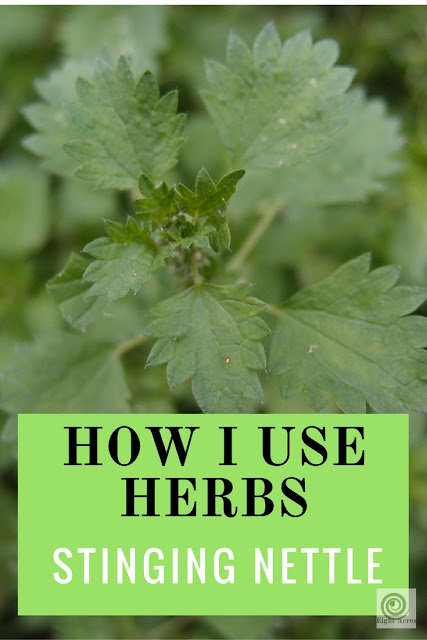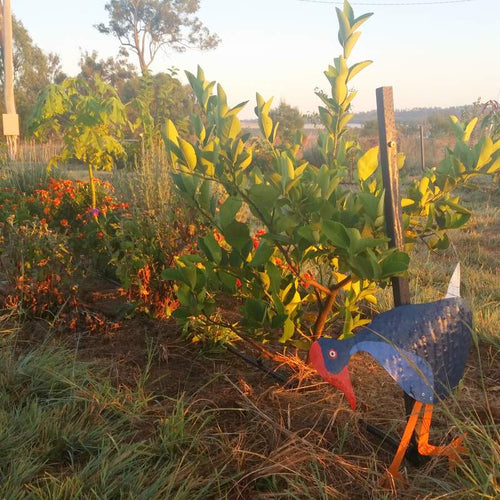How I use herbs - nettles
This is another herb in my garden that I'm not entirely sure about. I know its a nettle, because it stung me. Fortunately it was only small at the time and it didn't hurt much, but it did make me stop and look at this new plant in my garden, growing in amongst the chickweed. I can't remember if I had some nettle seeds, I think a friend did give me some, and if I "planted" any (by planted I mean threw seeds around at some stage), but I can't think where else they would have come from. Unfortunately, I therefore don't know which nettle I have! There are three suspects:
- Urtica dioica - Greater Nettle - this one grows to 1-1.8 m, so far the plants are small, but the leaves don't look quite right for this one
- Urtica urens - Lesser Nettle - this one is smaller and grows in QLD in the cooler months
- Urtica incisa - Scrub Nettle - native to Australia and hardy, it looks like the right leaf shape
It doesn't matter too much, because the uses are common to all three species. I just need to decide now what to do with the nettle patch, I'm not sure I really want it to stay in the middle of my garden, especially if it happens to be the Greater Nettle, which spreads like mint!
How to grow nettle
For the Greater Nettle, you can propagate by root division, but the others are propagated by seeds (and I haven't seen mine flower yet). Apparently it is very hardy, so it will be interesting to see how it survives our summer, or a harsh winter (we only had a mild winter this year). I would ideally plant it in a patch where its safe to spread, or in a container. The small sting that I received was not painful, but apparently it can be awful, so I wouldn't want to be accidentally walking past it regularly. This is a great post about harvesting and preparing nettle leaves, I will be working with gloves and tongs because I'm a wuss. I intend to remove all the nettle plants and move some of them to a more suitable area, and dry the rest of them to be used for tea and possibly some of the other suggestions below.
How to use nettle
You know its a special herb when it has six full pages in Isobel Shippard's "How can I use herbs in my daily life?"! Here's a summary of some of the less bizarre uses listed in that and other herb books, there really are far too many to repeat here:
- Pain relief - this sounds crazy, but nettle stings stimulate blood flow and many people have found relief from pain (a less extreme option is to put nettle leaves in your bath), and they are used to increase circulation.
- Eaten or taken as a tea, nettles have anti-inflammatory, detoxification and antioxidant properties. It is also rich in vitamins and minerals.
- Nettle stops bleeding - either the leaf or tea applied to a wound or nose bleed
- Used to treat allergies, including hayfever and eczema (it can be made into a salve by infusing in oil)
- For enlarged prostate - nettle roots can inhibit overgrowth of the prostate
- Green dye and fibre for ropes etc
- The leaves or the roots can be used in shampoo to stimulate circulation in the scalp - for dandruff and hair loss.
- Nettle leaves can be eaten like any green leafy vege - steamed, added to soups, smoothies - the leaves don't sting when they are heated, blended or dried. Older leaves are high in calcium oxalate (like spinach and silverbeet).
- Dried nettle can be fed to animals (the usually don't like being stung by fresh leaves)
- Nettle fertiliser tea can be made in the same way that comfrey is used, and nettle spray can be used to deter bugs in the garden
Nettles are a really useful herb, but one that needs to be controlled carefully in the garden. Do you grow and use nettles? Any tips?
























Leave a comment